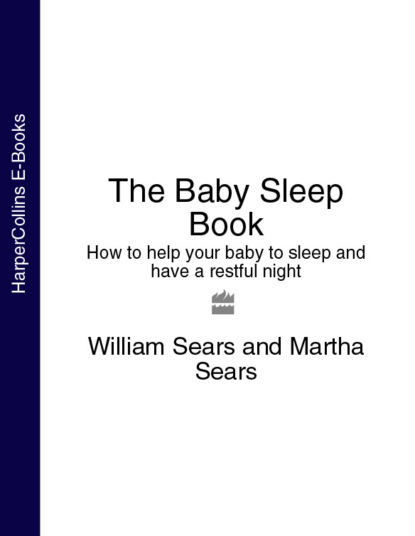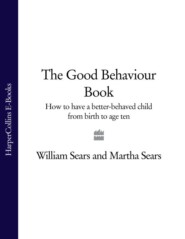По всем вопросам обращайтесь на: info@litportal.ru
(©) 2003-2024.
✖
The Baby Sleep Book: How to help your baby to sleep and have a restful night
Автор
Год написания книги
2018
Настройки чтения
Размер шрифта
Высота строк
Поля
REM (active) sleep decreases
Non-REM (deep) sleep increases
Sleep cycles lengthen
Vulnerable periods for night waking occur less frequently
The total number of hours of daily sleep lessens.
This is called sleep maturity.
Babies are designed this way. Why are babies’ sleep patterns so different from adults’? Answer: because babies need to sleep this way. How babies sleep is one of many things throughout infancy and childhood that parents can’t control, and it may even be unsafe and unwise to try to change. Keep in mind that babies sleep the way they do – or don’t – because they are designed that way for both developmental and survival benefits.
Babies sleep smarter. REM sleep is more than an annoying nuisance that keeps parents as well as babies from sleeping more deeply. The fact that babies’ developing brains don’t turn themselves off as well during sleep as adult brains has developmental benefits. Sleep researchers believe that REM sleep stimulates the infant brain at a time when it is growing very rapidly. Blood flow to the brain increases during REM sleep. The lower brain centres fire off electrical stimuli toward higher brain centres. This stimulation works like mental exercise to help the brain centres develop. The mental activity of dreaming helps the brain grow more neurons. This theory that REM sleep stimulates brain growth is supported by the fact that the young of highly intelligent animal species spend more time in REM sleep than the young of less intelligent species. One day as I was explaining the light sleep/better brain correlation to a tired mother of a wakeful infant, she chuckled, “In that case, my baby is going to be very clever.”
Babies sleep healthier and safer. Not only do these immature sleep patterns help babies grow smarter, they help them grow healthier and sleep safer. Suppose your baby slept like an adult. Suppose baby slept so deeply that he couldn’t signal when he was hungry, cold, had a stuffy nose and was having difficulty breathing, or was just plain scared? Baby’s well-being would be threatened. Babies come wired to awaken so that they can let nearby caregivers know what they need to thrive and survive. What does this mean to parents? These arousals are thought to be protective arousals, and they are beneficial. Training babies to sleep too deeply, for too long, too young is not in the best interest of the baby’s development and well-being.
Sears’ Sleep Tip: Now that you understand infant sleep, when people ask, “How does your baby sleep?” you can answer, “Like a baby”.
There are sleep trainers who ignore these basic biological facts and insist that babies should be able to put themselves to sleep and sleep through the night. As you can see from the information in the previous pages, putting a baby down to sleep alone in a cot and leaving the baby to cry himself to sleep, and back to sleep when he awakens, is biologically and developmentally wrong. We are passionate about helping parents understand their babies’ basic sleep needs and giving them tools to cope until their babies reach sleep maturity, so we hope you’ll keep these biological facts in mind when making all decisions about your baby’s sleep.
how babies sleep at various ages (#ulink_0d3eb7f8-ef01-57bb-a679-eb181717438f)
As with all developmental milestones, the age at which babies wake up less and start “sleeping through the night” varies from baby to baby. Here are the general sleep patterns that most babies follow at various stages along the way to sleep maturity:
Newborn period. In the first month, babies tend to sleep a total of sixteen to seventeen hours a day. They sleep in three to four hour stretches with an equal amount of sleep during the daytime and nighttime hours. At this age babies wake up mainly from hunger (which they don’t experience until they’re born, so it’s very scary for them at first).
One to three months. Between six and eight weeks of age, babies begin to “consolidate” their sleep into shorter periods during the day and slightly longer periods at night. They sleep from 15 to 16 hours a day. At this age, most babies wake up at least once a night and need a feeding and help to resettle (many will wake up two or three times). Babies start waking up not only from hunger, but also from a need for closeness (being alone is also very scary).
Three to six months. Babies sleep a total of around fifteen hours a day, taking two or three two-hour naps during the day and doing the rest of their sleeping at night. By six months, most babies will begin to sleep four- to five-hour stretches at night. At this age babies also begin having shorter REM periods of sleep and longer non-REM.
babies sleep differently
Notice how babies sleep differently than do adults and imagine what could go wrong if they didn’t.
Infant Sleep
Designed to easily awaken
Designed to sleep less deeply
Need night feedings
Short sleep cycles, 60 minutes
Mostly REM (active) sleep
Adult Sleep
Designed to stay asleep
Designed to sleep more deeply
Don’t need night feedings
Long sleep cycles, 90 minutes
Most non-REM (quiet) sleep
Six to nine months. Babies sleep around 14 hours a day and may drop one of their naps. Most babies between six and nine months take one morning and one afternoon nap. They may start sleeping seven-hour stretches at night. Most continue to wake up several times a night, and some can self-soothe back to sleep. Developmental changes start triggering night waking at this stage. They practise their motor development, such as sitting up, while still half-asleep. Add teething pain to this list and you have a recipe for night waking even in babies who were previously “good” sleepers.
Nine to twelve months. Babies sleep between thirteen and fourteen hours a day, still with two naps. Some babies may sleep ten hours at night, occasionally maybe even twelve hours (often interspersed with one or two feedings). While babies still need a morning and afternoon nap, the morning nap will usually be shorter.
One to two years. Babies sleep from twelve to thirteen hours a day, with ten to twelve hours at night, and two shorter naps. Around (or even before) eighteen months of age, some infants will begin to relinquish the morning nap, but need the afternoon nap. Some need two naps one day and one nap the next. Between 12 and 18 months babies often start waking up because of separation anxiety. From 18 months to two years, the concept of person permanence clicks in, enabling babies to fall asleep on their own more easily because they can understand that their parents are nearby in another room even though they can’t see them.
Two to three years. Toddlers sleep between eleven and thirteen hours in 24 hours, and often give up the morning nap. Nightmares and sleep terrors may begin, as well as sleep fears and fear of the dark. Previously “good sleepers” may become fretful sleepers at this age. Most toddlers graduate from cot to bed between ages two and three.
sleep needs
Three to four years. Finally by this stage most children’s sleep patterns become like those of adults. By four years, many children no longer nap during the day, yet still need eleven to twelve hours of sleep at night.
why babies wake up (#ulink_faf3ca5f-6a6e-5056-a1d5-73fd8be818e4)
Understanding all the things that can go on in that little body and mind when you put her down to sleep at night may help you understand why babies wake up so often, develop some creative tips to help her sleep, and above all sympathize with your baby. Here are the main reasons why babies awaken frequently.
1. They’re babies! As discussed in detail on page (#u9bc1a270-5e45-4c8f-896c-a7fbe59c5403) babies have shorter sleep cycles. Every hour or so as they pass from the state of deep sleep into light sleep, they go through a vulnerable period for night waking. If they sense any upset or discomfort during this vulnerable period, they cry for assistance. For safety’s sake, babies’ sleep patterns have easy arousability, which means that if anything threatens their well-being (such as SIDS) they wake up more easily than do adults. Exhausting as it may be to their caregivers, these are survival and developmental reasons why babies are prone to night waking.
2. They’re hungry. Tiny babies have tiny tummies and fast metabolisms. They can’t go as long without food as adults can. And breastmilk moves through baby’s stomach faster than formula. Many infants don’t start clustering their day feedings and dropping night feedings for at least six months, and most breastfeeding babies continue to need a night feeding for sometime thereafter. While some books may say infants don’t need night feedings after a certain age, try telling that to a baby with an empty tummy.
3. They’re thirsty. If your baby was used to feeding several times at night, or getting a bottle or two, but has now learned to sleep without this (thankfully!), he may start to feel the lack of fluids at night. This becomes truer during the toddler and preschool years. If you find your child is waking up and feeling thirsty, have a handy trainer cup or water bottle nearby that your child can drink from before he fully wakes up. Also be sure to provide a good size drink of water before bedtime (unless, of course, you are potty training at night).
Doctor Bob’s third child used to wake up between 18 months and 2 years asking for water (even though he was still breastfeeding). He wouldn’t even open his eyes. He’d just lie there asking for water, and when we gave him a drink, he’d fall right back to sleep.
4. They’re growing. Growth hormone levels are much higher during sleep. Thus, the saying, “he seemed to outgrow his baby clothes overnight”. Growth hormone also stimulates hunger. Waking to feed frequently is the baby’s way of making sure he has enough fuel to do the growing. Babies typically will experience growth spurts around three weeks, six weeks, three months, and six months. During these stretches your baby will go on feeding marathons day and night. Don’t worry. If your baby is generally a good sleeper, things should go back to normal within a few days. If your baby has been a night waker all along, then you probably won’t even notice the difference. Growth spurts are just another way that Mother Nature robs us of sleep (when we say “us”, what we really mean is you mums out there, and you dads who are noble enough to share the nighttime duty.)
Вы ознакомились с фрагментом книги.
Приобретайте полный текст книги у нашего партнера:
Приобретайте полный текст книги у нашего партнера:







